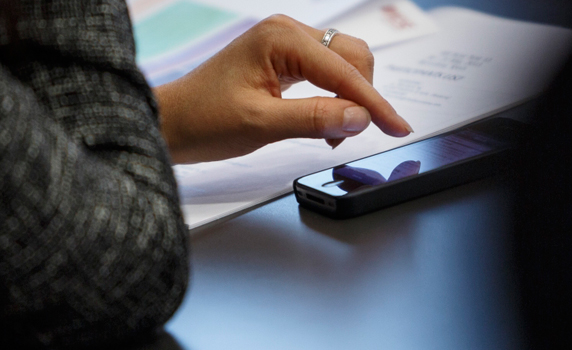
A new case study by IESE Prof. Pedro Nueno and researcher Patricia Akua Afful-Kwaw explores the strategic decisions related to Vodafone’s foray into Ghana. The case, soon available from IESE Publishing, is posted for open discussion on IESE Insight’s Case Forum, and the opinions of top executives will be published in the next issue of IESE Insight magazine.
For years, observers have been calling Africa the next frontier -- or even the last frontier -- for business growth, with many companies clamoring to stake their claim before it's too late. Vodafone is one such company that has been making inroads in Africa. In 2008, the British telecom provider made a bid for GT, the privatized state telecom company of Ghana, having previously established operations in Kenya, South Africa, Tanzania and Mozambique.
Although the action provoked intense debate, Ghana's government approved Vodafone's acquisition of 70 percent of GT for $900 million. It was a risky move to take over a company that every month was losing millions.
Yet, like many other leading multinationals, Vodafone seemed prepared to invest in Ghana anyway, not to make immediate profits, but to carve a solid niche for itself in a strategically important region.
Even so, no company can afford to invest that much money without ever seeing a profit. For Kyle Whitehill, CEO of Vodafone Ghana, this African subsidiary was proving to be more expensive than planned.
Setting Priorities
Vodafone's top management had deemed Sub-Saharan Africa a priority area and agreed on some key aspects with regard to sustaining profitable growth: investment in infrastructure; innovation; understanding the customer; and key alliances.
Whitehill had a long track record in Africa, having worked in Kenya and Tanzania. He understood the choice of Ghana, given that the country enjoyed political stability, economic growth and a government that appreciated the importance of telecom.
Indeed, the deregulation of the sector had opened the doors to ambitious entrepreneurs and spurred the biggest boom in Ghana's recent economic history: In just 15 years, telephone density went from one of the lowest in Africa to 80 percent of the population. Telecom accounted for 7 percent of investments in Ghana, 10 percent of government income and 2 percent of GDP.
The first thing Vodafone did upon acquiring GT was downsize. Around 2,000 workers were affected -- either voluntarily or compulsorily laid off, retired or reengaged elsewhere as workers with companies or contractors that provided services to Vodafone. This restructuring was aimed at getting the company in shape to improve its operations and services, so that it could go head to head with the competition.
And the competition was tough. In 2011, South Africa-based MTN was the market leader in Ghana, with 48.4 percent market share. The global cell company Millicom, operator of the Tigo and Buzz networks, was best known for being the first mobile network in all of Sub-Saharan Africa, based on a business model of affordability, accessibility and availability of services. When Vodafone started operations in Ghana, Tigo had 23.4 percent market share, though the introduction of mobile phone portability in 2011 saw Vodafone shave nearly 4 percent off that share.
Promising Growth Opportunities
Vodafone Ghana pursued a number of key alliances, such as sponsoring the annual African Business Leaders Forum. It partnered with Shell to distribute Vodafone products -- from handsets to SIM cards -- in service stations throughout the country. It launched a Webbox that enabled people to access the Internet via any standard domestic television. In addition, around $700 million was to be invested in fiber to connect 150,000 homes to the Internet.
In doing all this, Whitehill hoped to eventually generate enough profits to be able to start financing Vodafone Ghana's growth. And there were plenty of promising growth opportunities.
One of Vodafone's early collaborations was with Sightsavers and the Ghana Health Service, offering free eyesight testing and surgeries for visually impaired people. It also sponsored a TV program called HealthLine, offering medical advice and allowing people to text their health questions to the show.
In the realm of health care, Vodafone spotted huge potential, given that mobile connectivity is crucial to a host of services that don't depend on infrastructure. Leading companies like Hewlett-Packard, Novartis and IBM were already lending their technical expertise to NGOs for a variety of e-health initiatives.
Meanwhile, the government had said it wanted students in schools and universities to have more access to laptops and tablets. And only 8 percent of the market had smartphones.
Which way to go? Vodafone Ghana had to start seeing some returns on its investments. It wanted to gain market share through better services rather than lower prices. To offer better services required getting closer to consumers in order to understand them and their needs. Should it continue to sponsor innovative projects and establish alliances to gain market share? Or was it time to consider a different strategy and operating model, in order to sustain profitable growth in the long term?
Post your comments in the IESE Insight Case Forum.